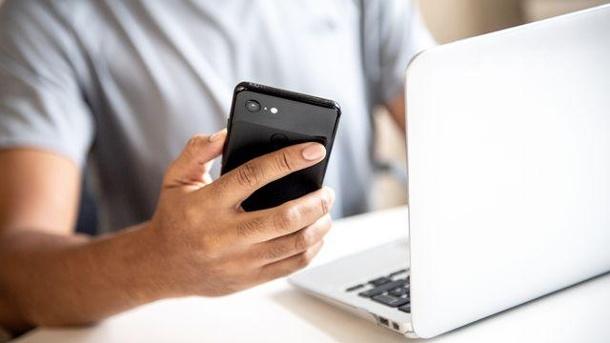How big is the anger about phone companies?
Elbrecht: Complaints about telecommunications providers are a classic among consumer advice centers. With 11,000 complaints, Vodafone was the frontrunner in 2020.
Why?
Elbrecht: Something seems to be going wrong at Vodafone. Not only in the Vodafone shops but also in the telephone customer service. Consumers report that new contracts or additional options for existing contracts are foisted on them both on the phone and in shops, i.e. services that they do not need and do not want to use.
What contracts are these?
Elbrecht: For example, new mobile phone contracts or additional contracts such as Internet security packages are foisted on customers. It is often about amounts that many customers do not immediately notice on the bill, such as 3.99 euros. It is problematic if the first three months are free and you have to pay from the fourth month. The customer only notices that he has an unwanted contract when he can hardly remember the visit to the Vodafone shop or the call from Vodafone.
Can customers not revoke such contracts?
Elbrecht: Not if they were completed in the store. In the case of contracts concluded over the phone, there is generally a right of withdrawal within 14 days from the date of the conclusion of the contract or from receipt of the goods. The prerequisite here is that the cancellation policy is correct.
In principle, since December 1, 2021, telecommunications customers have been better protected against foisted contracts on the phone. Providers are now obliged to provide consumers with a written summary of the contract, which must be explicitly approved. Only then is there a legally binding contract. The same applies to contracts in a telecommunications shop: Providers must hand over the contract summary as a document or make it available by e-mail before the contract is concluded. In addition, there is the problem of "blind signatures" when consumers sign on a tablet in a shop without knowing it. Hopefully this will improve in the future.
They recommend customers to take a witness to the Vodafone shop so that they can use their help to prevent a foisted contract. Why?
Elbrecht: In every telecommunications shop, customers will find well-trained staff who can get them to sign something they may not want at all. That's why it's important to pay close attention and have a witness for the sales pitch. This gives consumers better protection against walking out of the store with contracts they wouldn't sign if they thought twice. Customers are at the mercy of articulate salespeople, not just at Vodafone but at other phone companies as well. We therefore advocate a right of withdrawal that also applies to contracts concluded in shops.
Vodafone stores are often operated by franchisees. Are these operators to blame when customers are being ripped off, or is it Vodafone itself?
Elbrecht: Ultimately, it doesn't matter to consumers whether they are in trouble with the franchise company or directly with a telecommunications provider like Vodafone. The contracts bear the logo of the telecommunications company and that is what the consumer resonates with. Having identified numerous issues at Vodafone this year, we will continue to look into them more closely in the future.
How can customers defend themselves against contracts foisted on the phone?

Elbrecht: A foisted contract is formally and legally not legally effective. Nevertheless, telephone providers may already debit money from the customer's account for this. It is advisable for consumers to object to the putative contract in writing. In addition, consumers should then have their bank charge back the direct debit and then only transfer the legitimate telephone costs - without the costs for the unwanted contracts. If the telephone provider remains firm, customers should seek the help of a consumer advice center
There are also problems with other telecommunications companies. What do customers tell you who complain to their mobile phone provider about dubious third-party providers?
Steinbach: We receive complaints about customer service blocking complaints over the phone. It went so far that customer service employees simply hung up. Also, customers had third-party services on their bill because the carrier apparently ignored the third-party lock they wanted. Unfortunately, many customers do not yet know that mobile phone companies have to set up a third-party lock if customers request it.
Do telephone complaints help at all?
Steinbach: Customers should ideally complain in writing. Only then do you have proof of your complaint. They should also insist on a written reply from the mobile operator.
What if there is no response or the mobile operator refuses to refund the money for third-party "services" that were not ordered?
Steinbach: The mobile phone company and the third-party provider must prove that a contract was concluded via the smartphone. The ordering procedures specified by the Federal Network Agency apply, in particular the so-called redirect procedure. If the customer has not ordered anything, the mobile phone company and third-party providers cannot prove an order - precisely because there is no legally concluded contract. You must then refund the wrongly debited money. In such cases, you can also complain to the Federal Network Agency.
News in the Telecommunications Act have been in force since December 1, 2021. Does this bring improvements for customers who have problems with third-party providers?
Steinbach: The mobile phone companies now have to state exactly on the telephone bill which third-party provider has been billed for which services: i.e. name, address and a toll-free customer service number.
The Federal Network Agency already has such a requirement.
Steinbach: The specifications of the Federal Network Agency only cover some of the information mentioned and are partly voluntary. Now we have a legal obligation to include this information directly on the invoice.
How come cell phone companies keep ripping off their own loyal, long-term customers?
Steinbach: The mobile communications market in Germany is almost saturated. In the complaints we receive, we see that some providers lure customers into subscription contracts or subscription traps. The incentive system seems to be problematic. Employees of mobile phone companies receive commissions if they close a large number of contracts or if they obtain consent from customers to be contacted by telephone, e-mail or letter. Unfair methods are also used, as consumers keep telling us. Telcos should reward their employees for customer satisfaction, not for the number of new contracts signed.
When customers resist, the telephone company often responds that the contract is being canceled as a gesture of goodwill. However, they want to keep the money they have collected up until then. What advice do you have for customers in such cases?
Elbrecht: The lower the financial damage for the consumer, the greater the likelihood that he will write this off as a lesson learned. Many say: "Before I start a legal dispute, I'll just pay, then I'll have my peace." We advise against that. Consumers should not write off their money. You should put up a fight, preferably with the support of the consumer advice centers. We not only offer personal or telephone advice, but also sample letters.











Test winner at Stiftung Warentest:...
How to get the perfect look for Cos...
Dry elbows: This is how brittle ski...
Cream for Rosacea: The Best Creams